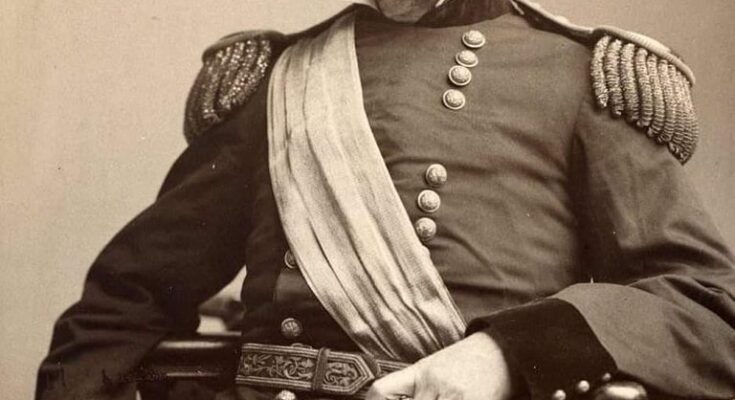In the annals of American history, few figures evoke as much controversy, admiration, and curiosity as General William Tecumseh Sherman. Known for his ruthless military tactics and his infamous “March to the Sea” during the Civil War, Sherman left an indelible mark on the nation, shaping its trajectory in profound ways. Yet, beyond the battlefield, Sherman’s complex character and enduring legacy continue to spark debate and fascination.
Born in 1820 in Lancaster, Ohio, William Tecumseh Sherman was raised in a family marked by tragedy and turmoil. His father died when he was just nine years old, leaving the family in financial distress. Despite these challenges, Sherman’s intellect and ambition shone through. He attended the United States Military Academy at West Point, where he graduated sixth in his class in 1840.
Sherman’s military career began modestly, serving in various posts across the country and rising steadily through the ranks. However, it was during the Civil War that Sherman’s strategic brilliance and unyielding resolve came to the fore. As a key commander in the Union Army, Sherman played a pivotal role in shaping the outcome of the conflict.
One of Sherman’s most controversial and consequential campaigns was his march through the heart of the Confederacy. In 1864, with the war dragging on and Union victory uncertain, Sherman devised a bold and audacious plan to break the South’s will to fight. Departing from Atlanta, Georgia, Sherman and his army embarked on a devastating campaign of destruction, laying waste to everything in their path.
The March to the Sea was a scorched-earth campaign unlike anything seen before in American history. Sherman’s troops, numbering over 60,000 men, cut a swath of destruction 60 miles wide, from Atlanta to Savannah. Railroads were torn up, bridges destroyed, and cities reduced to rubble. The goal was not just to defeat the Confederate Army but to demoralize the Southern population and destroy its ability to wage war.
The campaign was brutal and controversial, drawing condemnation from both sides. To Sherman, however, it was a necessary measure to bring about the swift and total collapse of the Confederacy. He famously declared, “War is cruelty, and you cannot refine it.”

Yet, Sherman’s legacy extends far beyond his military exploits. In the aftermath of the war, he played a key role in Reconstruction efforts, working to heal the wounds of a divided nation and chart a path forward. As head of the Military Division of the Mississippi, Sherman oversaw the reintegration of the Southern states into the Union, albeit with mixed results.
Sherman’s views on race and politics were complex and evolving. While he believed in the equality of all men under the law, he also held racist attitudes common to his time. His famous remark that “the only good Indian is a dead Indian” reflects the prevailing attitudes of the era, even as he advocated for fair treatment of Native Americans in the aftermath of the Civil War.
In his later years, Sherman served as General of the Army, the highest-ranking officer in the United States military. He retired in 1884 and spent his remaining years writing his memoirs and reflecting on his tumultuous life and career.
Today, Sherman’s legacy remains as controversial as ever. To some, he is a hero who helped preserve the Union and end the scourge of slavery. To others, he is a villain whose ruthless tactics caused untold suffering and destruction. Yet, few can deny the indelible mark he left on American history.
As we grapple with the legacies of the past and strive to build a more just and equitable future, the story of William Tecumseh Sherman serves as a reminder of the complexities of history and the enduring impact of those who shape it. Love him or loathe him, Sherman’s name will forever be etched in the annals of American history, a testament to the enduring power of leadership, courage, and conviction.



